Savings – Not Tariffs – Will Make America Great Again
In a podcast earlier this month, Peter Schiff talked about the “twin deficits” of national debt and trade. We’ve talked a lot about the federal debt spiral, and there has even been some discussion about it in the mainstream. But almost nobody is paying attention to the growing trade deficit. Peter is an exception. When the August numbers came out earlier this month, Peter noted it was the largest trade deficit in merchandise since the summer of 2008. And what happened right after the summer of 2008? The collapse of 2008.
The reason the trade deficit got that big is before the collapse, we had a bubble. We had a consumer debt binge where all the cheap money that was being created was feeding imports because Americans were taking their incomes, or their cheap money, and buying imported products. And so the big trade deficit was evidence of the bubble. And of course, the big trade deficits in and of themselves are unstainable.”
Antonius Aquinas has also taken note of the trade deficit. In the following article, he points out that tariffs aren’t going to make America Great Again. We need savings and investment, not a trade war.![]() The following was written by Antonius Aquinas. Any views expressed are his own and do not necessarily reflect the views of Peter Schiff or SchiffGold.
The following was written by Antonius Aquinas. Any views expressed are his own and do not necessarily reflect the views of Peter Schiff or SchiffGold.
While the farcical Kavanaugh confirmation hearings dominated the news cycle for the past couple of weeks, little mention was made of a disturbing economic headline – the August US trade deficit. Despite all the bluster from the Trump Administration about “winning trade wars” and “trade wars are easy,” America’s trade imbalances for August were the highest ever and its deficit with its most contentious partner – China – reached an all-time high.
Some highlights, or low lights, for the Trump Administration and the clueless economic nationalists were:
- August imports of industrial supplies and materials ($49.7 billion) were the highest since December 2014 ($51.8 billion).
- August imports of automotive vehicles, parts, and engines ($31.7 billion) were the highest on record.
- August imports of other goods ($9.1 billion) were the highest on record.
- August petroleum imports ($20.5 billion) were the highest since December 2014 ($23.6 billion).*
These numbers will probably mean that the Trump Administration will push for more and stiffer tariffs, although the president is set to meet with Chinese President Xi Jinping next month. Yet, if anything comes out of the meeting, it will have little impact on US trade imbalances or the economy overall.
President Trump does not have to meet with the Chinese president or, for that matter, any other head of state, for the cause of US trade problems emanates right where he currently resides – Washington, D.C. The US trade deficit is the culmination of years of ruinous congressional and presidential policies of high taxes, onerous regulations, and deficit spending, which have gutted the nation’s manufacturing base. The US simply does not produce goods like it used to and has been kept afloat by its status as the world’s reserve currency. “King Dollar” has allowed America to consume without having to produce.
Instead of trying to strong-arm trading partners into better “deals,” the Trump Administration should be creating an environment for the re-industrialization of the American economy. The first step in such a policy must start with savings which are the key to economic growth.
Before production takes place, savings must be accumulated. The creation of goods takes place over time and savings provide the means for production – land, labor, capital – to be implemented. The more sophisticated goods require greater amounts of savings since they take longer to produce. Production, and thus, economic growth are intimately linked to savings.
Since savings are fundamental for economic growth, policies which encourage it should be advanced. Since the act of saving involves sacrifice, compensation for such behavior – “interest” – should not be tampered with or suppressed which will discourage saving.
The Federal Reserve’s policy since the financial crisis has been to artificially lower interest rates as it has tried to revive the economy by money printing and bank-credit expansion. The result has been the creation of massive asset bubbles, exploding federal deficits, and a debt-ridden economy.
While President Trump may prefer low interest rates, the exact opposite should be advocated. A free-market rate of interest (higher than current levels) would encourage savings, and while higher rates would pop asset bubbles, they are the necessary, albeit, painful fix to readjust the economy.
Once the bubbles are deflated, real economic growth can take place based on actual savings which will lead to capital formation and the creation of goods. America could start again to become productive and create goods to exchange with its trading partners. Such a transition, however, will not take place overnight, nor will it be pleasant.
Below market interest rates have enabled the federal government to engage in its profligate spending, much of which is done through borrowing. Instead of badgering the Chinese and others, President Trump should be attacking Congress to rein in spending. Of course, he is a major culprit in this area, having signed off on the latest massive budget which included insane increases to the unproductive and destructive “defense” spending of some $700 billion which he lobbied for!
Trade deficits are a symptom of a bigger problem with the economy and are an excuse to deflect from dealing with real issues. Until the current “bubble economy” is deflated and savings and investment become the foundation of American economic life, trade deficits will continue and the ensuing trade wars may then escalate into actual shooting ones.
Antonius Aquinas is an author, lecturer, and a contributor to Zero Hedge, Lew Rockwell and SchiffGold. Contact him at antoniusaquinas[at] gmail [dot] com. You can visit his website HERE.
NOTES
*Tyler Durden, “US Trade Deficit With China Hits New All-Time High,” Zero Hedge. 05 October 2018.
Get Peter Schiff’s most important Gold headlines once per week – click here – for a free subscription to his exclusive weekly email updates.
Interested in learning how to buy gold and buy silver?
Call 1-888-GOLD-160 and speak with a Precious Metals Specialist today!



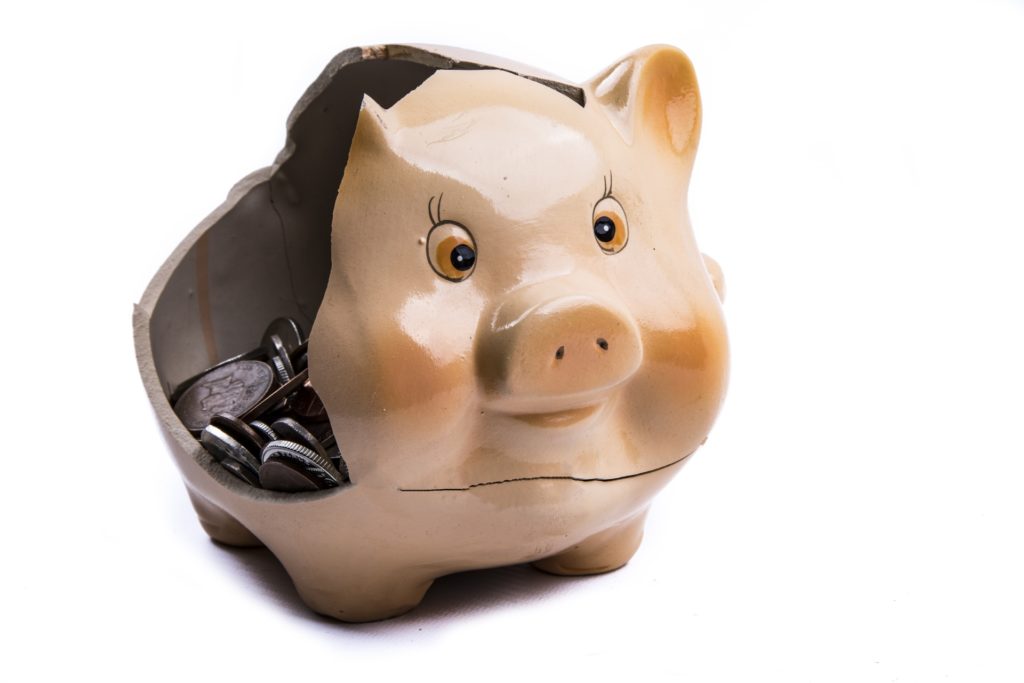

 Beneath the veneer of headline job gains, the American economy teeters on the brink: native employment dwindles as part-time and immigrant jobs surge. Government hiring camouflages looming recession warnings. Inflation and political blunders worsen the crisis, fueling public outrage at the establishment’s mishandling of the economy.
Beneath the veneer of headline job gains, the American economy teeters on the brink: native employment dwindles as part-time and immigrant jobs surge. Government hiring camouflages looming recession warnings. Inflation and political blunders worsen the crisis, fueling public outrage at the establishment’s mishandling of the economy.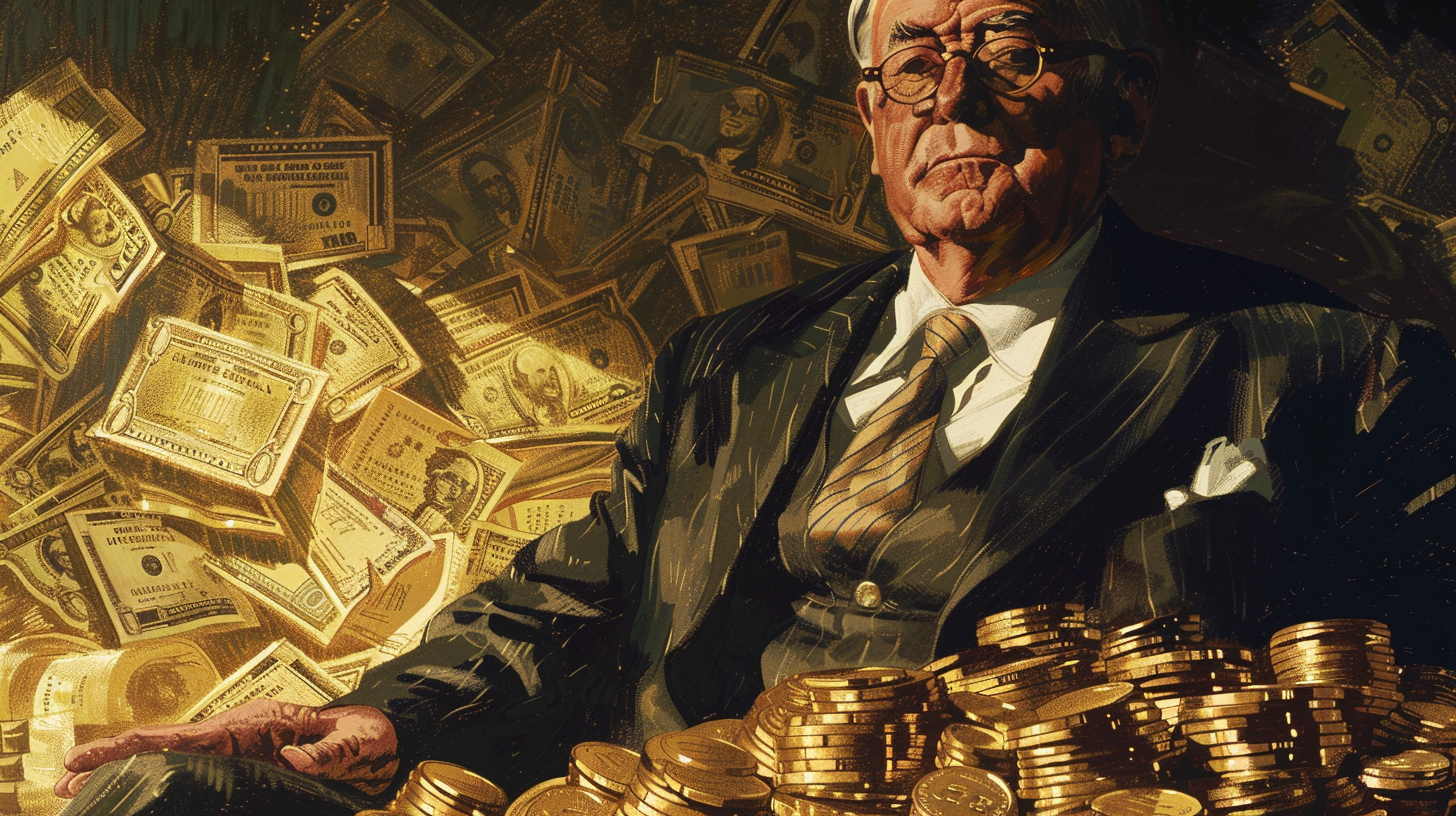 On April 5 1933, Franklin D. Roosevelt abandoned the gold standard, wielding questionable legal power amidst America’s dire economic depression. His whimsical approach to monetary policy, including coin flips and lucky numbers, unleashed unprecedented inflation and price increases that have since amounted to nearly 2500%. Our guest commentator explores this tragic history and the legacy […]
On April 5 1933, Franklin D. Roosevelt abandoned the gold standard, wielding questionable legal power amidst America’s dire economic depression. His whimsical approach to monetary policy, including coin flips and lucky numbers, unleashed unprecedented inflation and price increases that have since amounted to nearly 2500%. Our guest commentator explores this tragic history and the legacy […]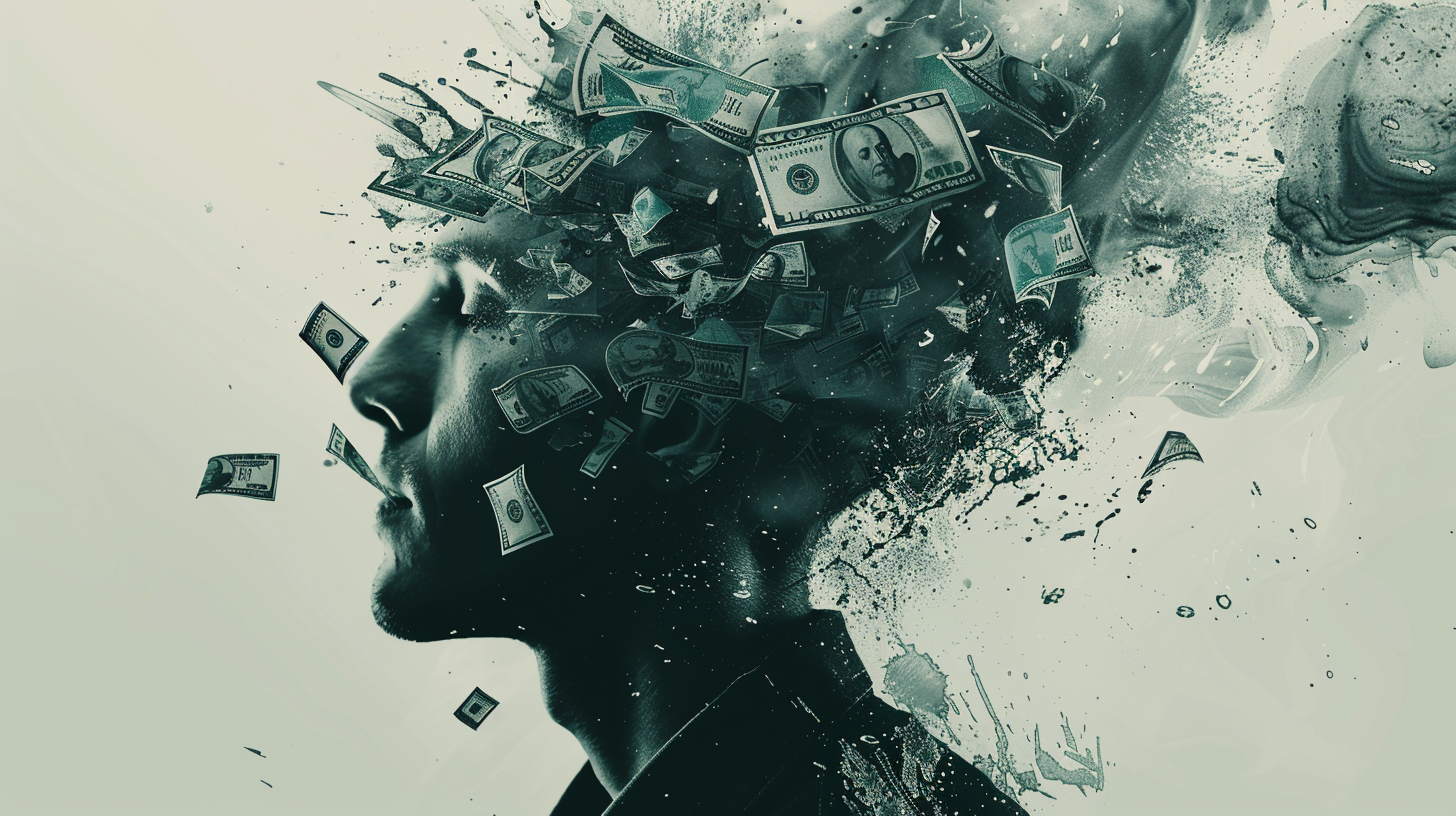 Welcome to the world of modern economics where the term “inflation” no longer signifies the increase in the quantity of money, but has evolved into a plethora of buzzwords. From “shrinkflation” to “greedflation,” these new terms and semantic shifts are by no means harmless but a manipulation of popular sentiment. Von Mises said they play […]
Welcome to the world of modern economics where the term “inflation” no longer signifies the increase in the quantity of money, but has evolved into a plethora of buzzwords. From “shrinkflation” to “greedflation,” these new terms and semantic shifts are by no means harmless but a manipulation of popular sentiment. Von Mises said they play […]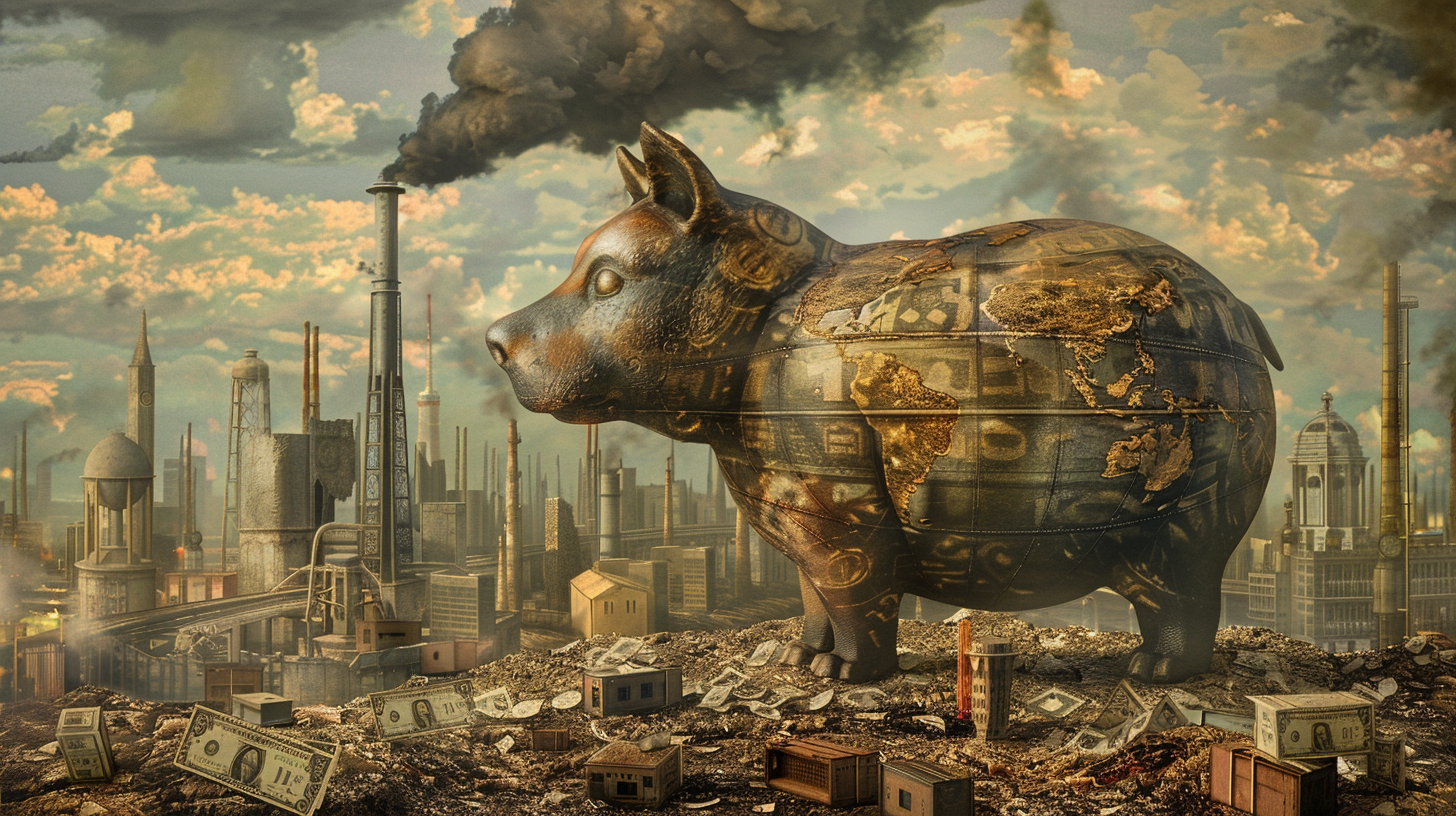 Assuming CPI measurements are not understatements, the dollar’s value has plummeted by a staggering one-fifth since 2020, yet, rather than acknowledging its role in fueling this economic turmoil, the Biden administration deflects, casting capitalism and corporate greed as the villains. The latest February CPI data show more signs of the upcoming inflation bloodbath.
Assuming CPI measurements are not understatements, the dollar’s value has plummeted by a staggering one-fifth since 2020, yet, rather than acknowledging its role in fueling this economic turmoil, the Biden administration deflects, casting capitalism and corporate greed as the villains. The latest February CPI data show more signs of the upcoming inflation bloodbath.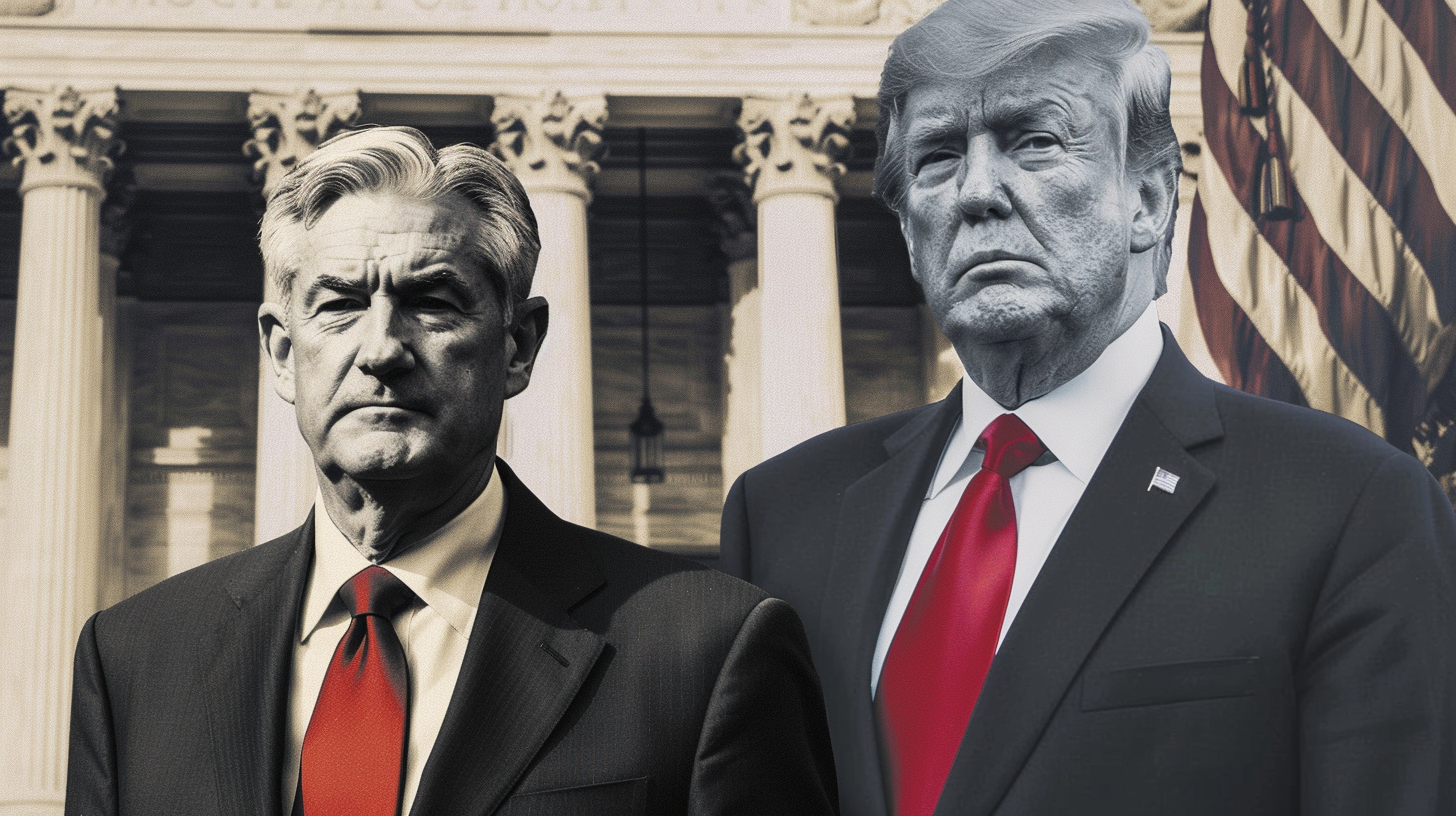 The Federal Reserve is often viewed as a neutral guardian of the economy, tasked with safeguarding employment and ensuring stable prices. However, the Fed is run by individuals who, like anyone else, are swayed by certain motivations. Do the people behind the Fed truly have the incentive to remain impartial? Our guest commentator demystifies the […]
The Federal Reserve is often viewed as a neutral guardian of the economy, tasked with safeguarding employment and ensuring stable prices. However, the Fed is run by individuals who, like anyone else, are swayed by certain motivations. Do the people behind the Fed truly have the incentive to remain impartial? Our guest commentator demystifies the […]